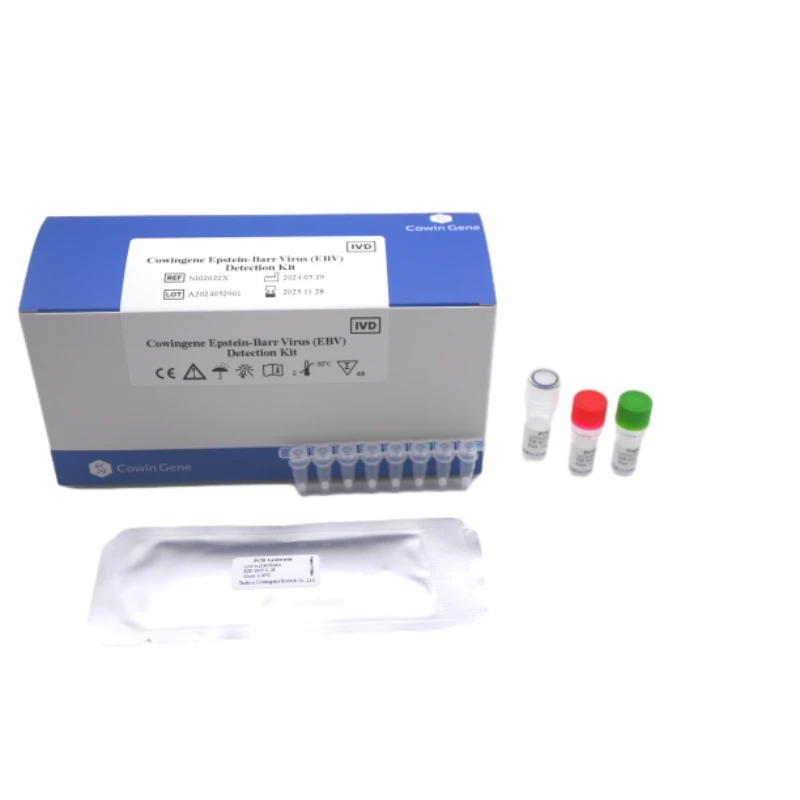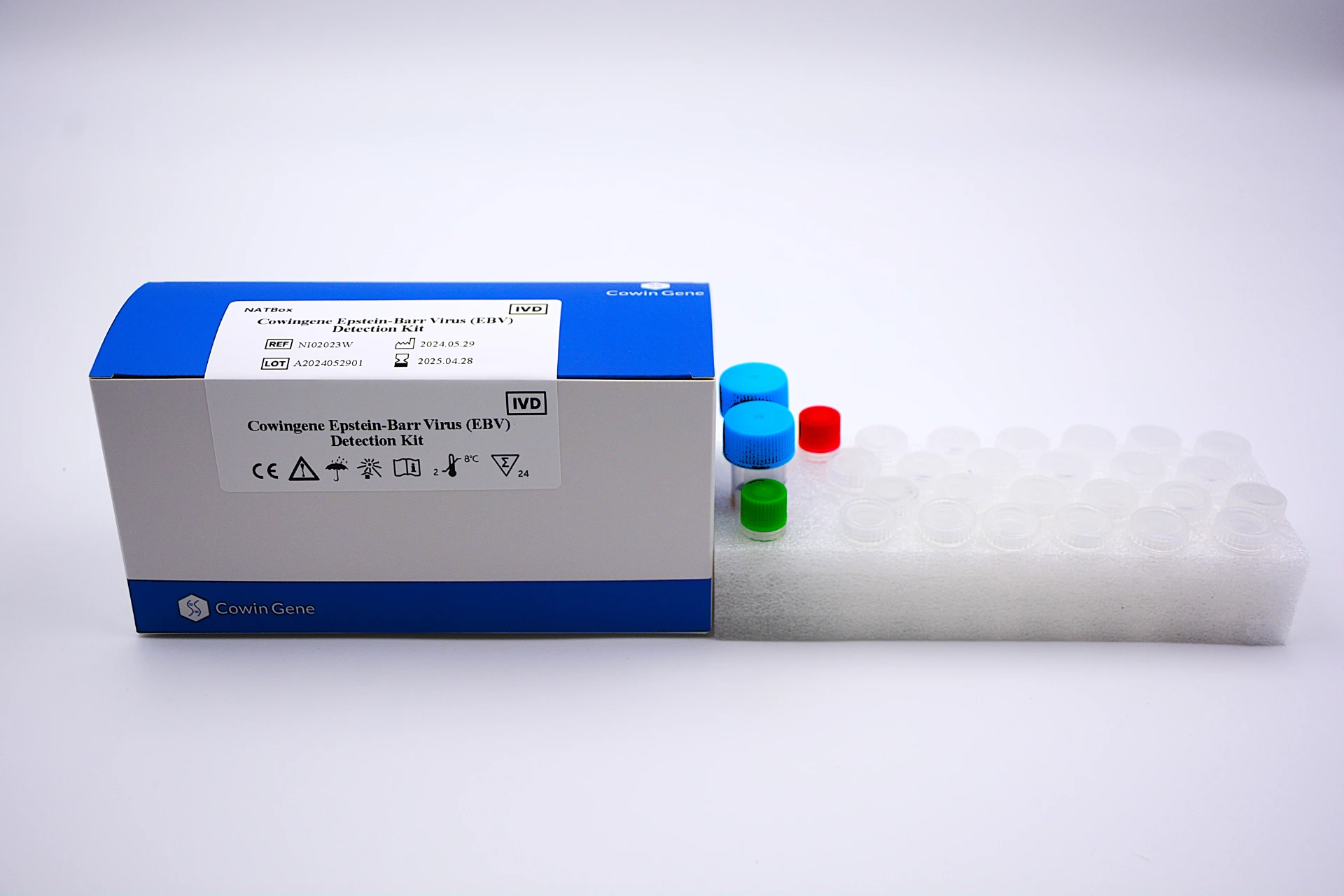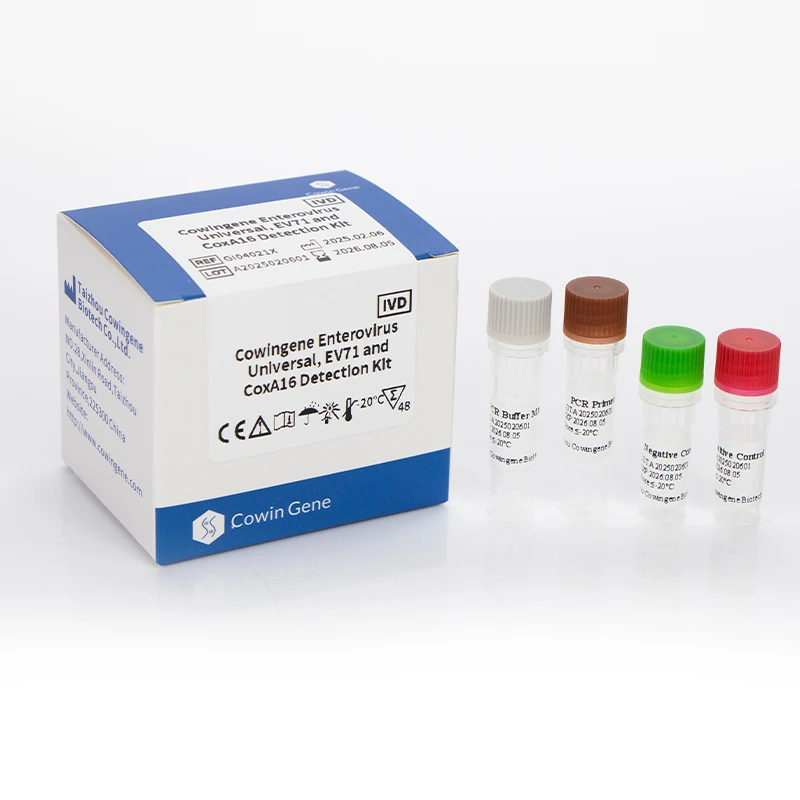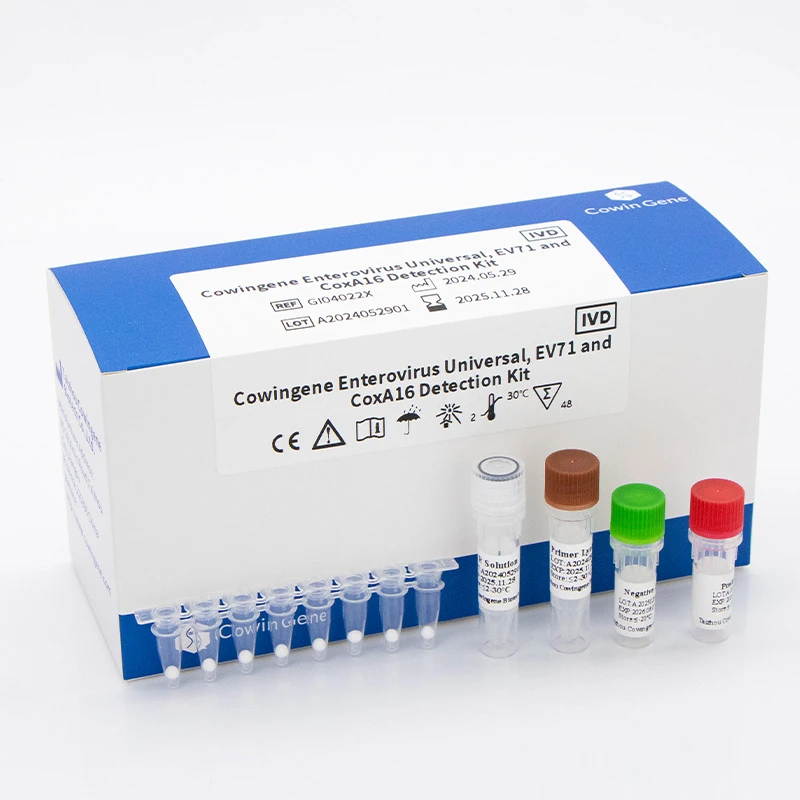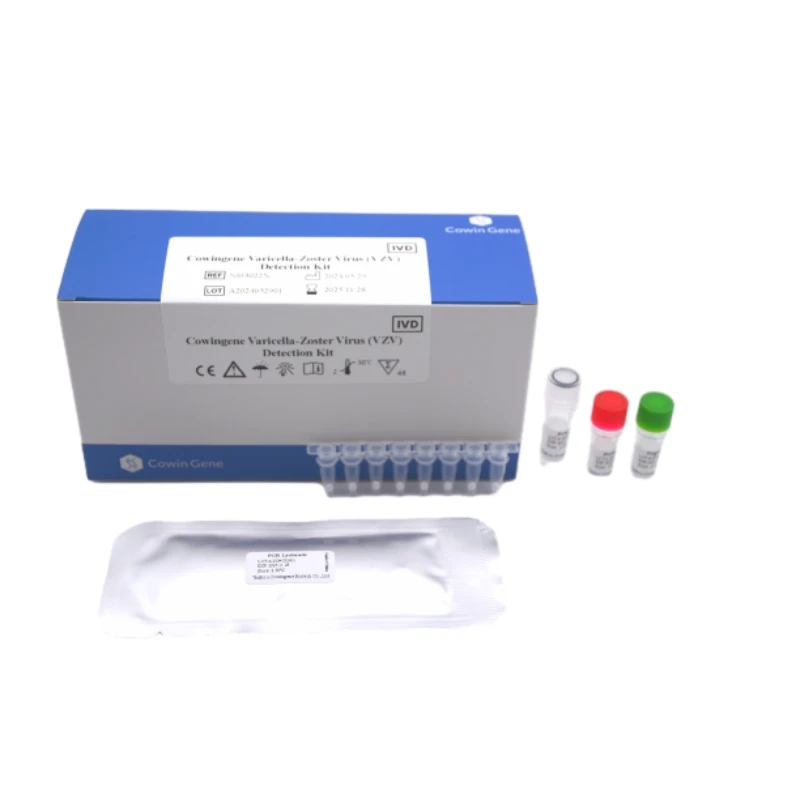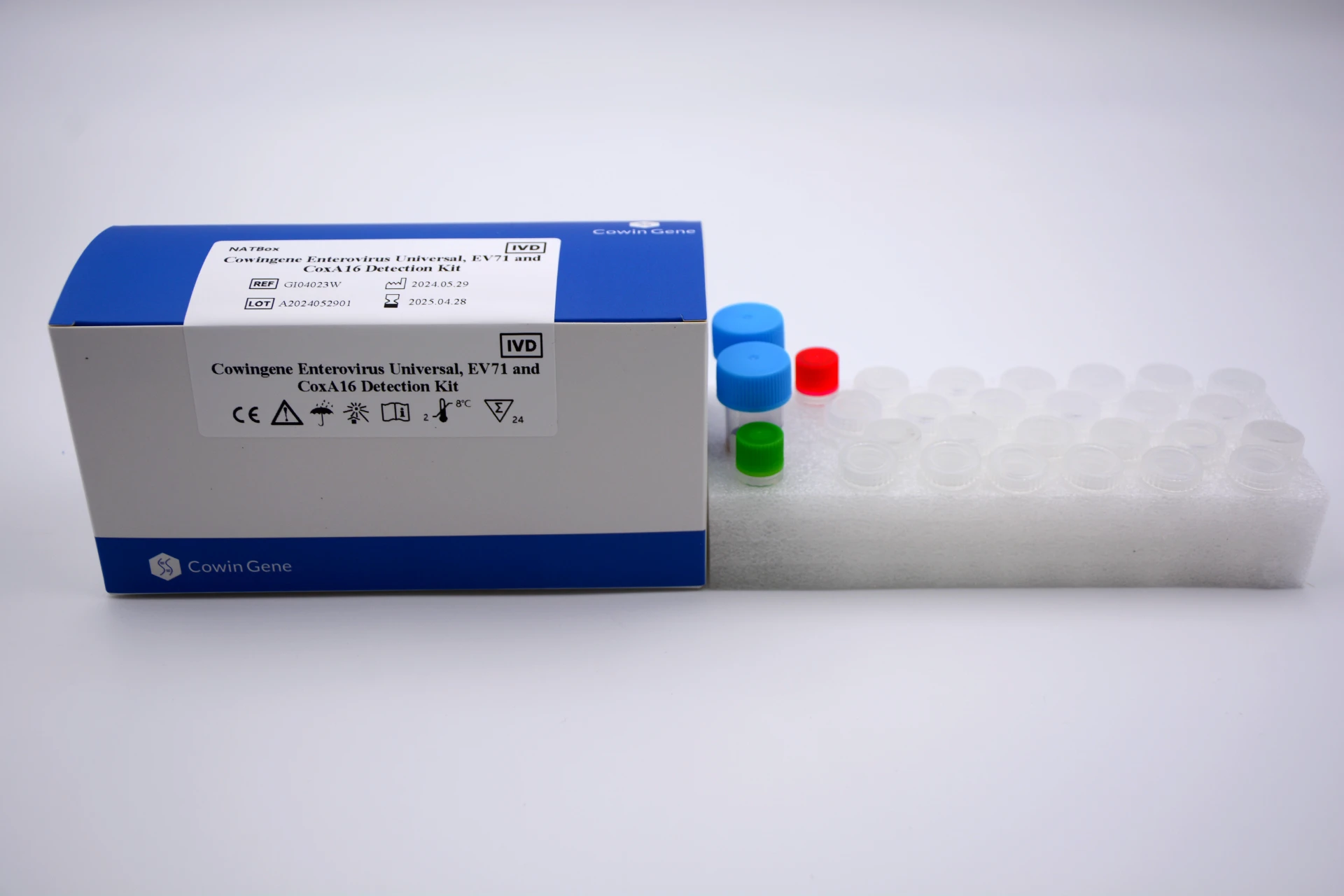Oct . 01, 2025 08:25 Back to list
Cowingene HPV 28 Kit- Taizhou Cowingene Biotech Co.,Ltd.|HPV Genotyping, PCR Detection
The Cowingene HPV 28 Genotyping Detection Kit (Liquid) represents a cutting-edge solution in the field of molecular diagnostics, offering unparalleled precision in detecting 28 high-risk human papilloma virus (HPV) subtypes. Developed by Taizhou Cowingene Biotech Co., Ltd., this kit leverages advanced polymerase chain reaction (PCR) technology to ensure reliable results for clinical and research applications. This article delves into the product’s features, advantages, technical specifications, and broader implications in healthcare.
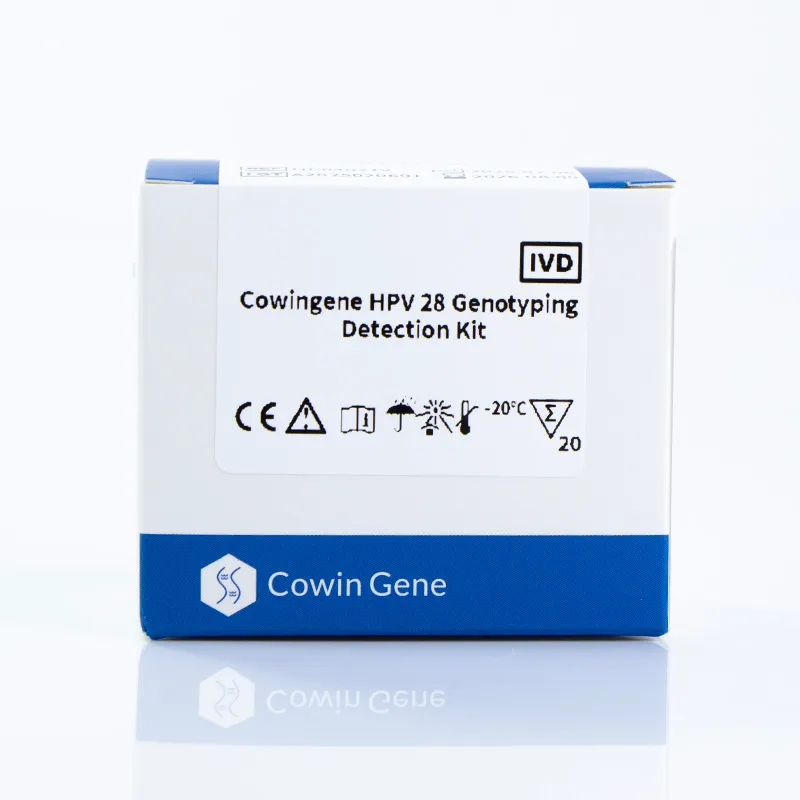
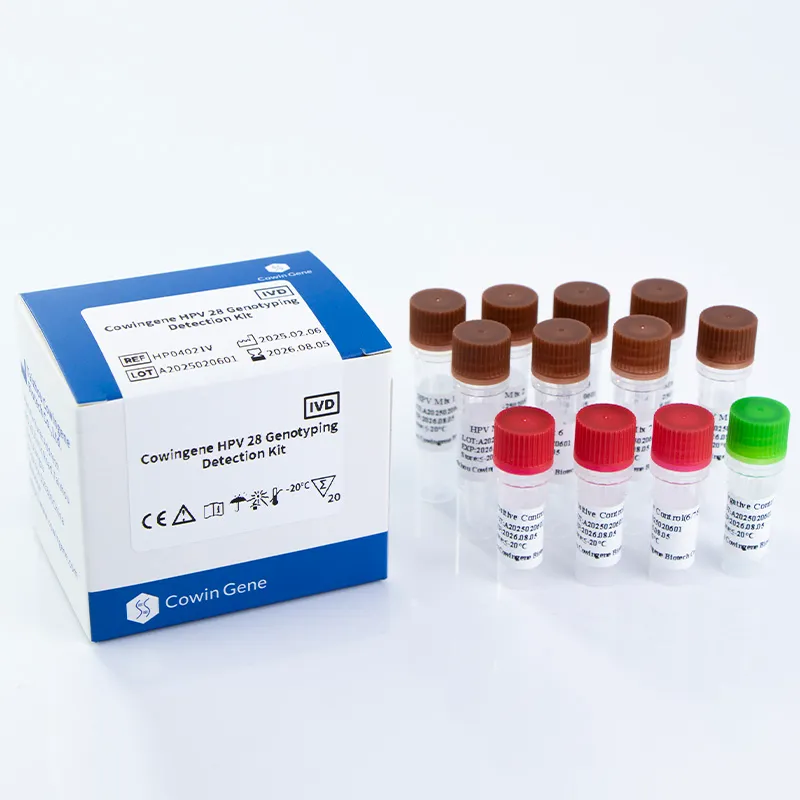
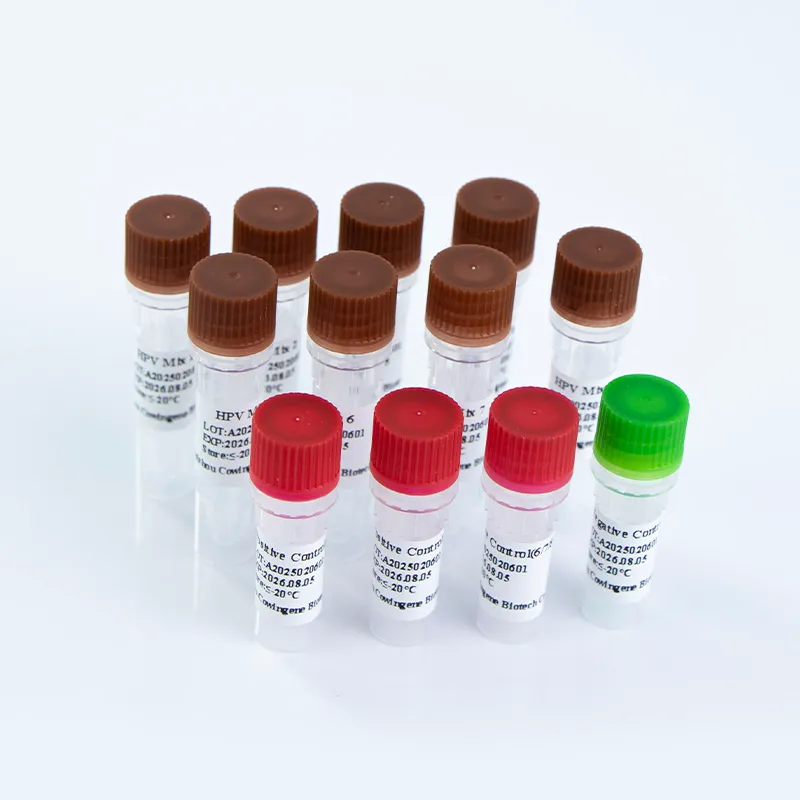
Core Features of the Cowingene HPV 28 Kit
The Cowingene HPV 28 Genotyping Detection Kit (Liquid) is engineered to detect 28 high-risk HPV subtypes, including 16, 18, 31, 33, 35, 39, 45, 51, 52, 53, 56, 58, 59, 61, 62, 66, 68, 73, 81, 82, 83, 85, 86, 87, 89, 90, 91, and 92. Its design emphasizes sensitivity, specificity, and user-friendly workflows. Key features include:
- High Sensitivity: The kit employs optimized PCR protocols to detect low viral loads, ensuring early identification of infections.
- Broad Subtype Coverage: Comprehensive detection of 28 HPV subtypes, aligning with global health guidelines for cervical cancer screening.
- Minimal Sample Requirements: Validated for use with cervical swabs, urine, and self-collected vaginal samples, enhancing accessibility for diverse patient populations.
- Automated Workflow Compatibility: Designed to integrate seamlessly with automated PCR platforms, reducing manual intervention and minimizing contamination risks.
Advantages in Clinical and Research Applications
By addressing critical gaps in traditional HPV detection methods, the Cowingene HPV 28 Genotyping Detection Kit (Liquid) offers distinct advantages:
Enhanced Diagnostic Accuracy
The kit’s advanced PCR technology ensures high specificity, reducing false positives and negatives. This is particularly crucial in cervical cancer screening, where accurate risk stratification is essential. According to the National Institute of Standards and Technology (NIST), standardized molecular diagnostic protocols significantly improve clinical outcomes by minimizing diagnostic errors (NIST, 2023).
Streamlined Sample Handling
The ability to use self-collected vaginal samples expands the kit’s utility in resource-limited settings. This feature aligns with the World Health Organization’s (WHO) recommendations for decentralized HPV testing, as highlighted in their 2022 guidelines on cervical cancer prevention. Self-collection reduces the need for trained healthcare professionals, making screening more accessible.
Scalability and Efficiency
The kit’s compatibility with automated systems enables high-throughput processing, ideal for large-scale screening programs. This efficiency is vital for public health initiatives aiming to reduce cervical cancer incidence, as noted in a 2021 study by the NIST on diagnostic technology optimization.
Technical Specifications
| Feature | Description |
|---|---|
| Target Subtypes | 28 high-risk HPV subtypes (16, 18, 31, 33, 35, 39, 45, 51, 52, 53, 56, 58, 59, 61, 62, 66, 68, 73, 81, 82, 83, 85, 86, 87, 89, 90, 91, 92) |
| Validated Specimens | Cervical swab, Urine, Self-collected vaginal |
| PCR Method | Real-time PCR with dual-labeled probes |
| Detection Limit | 100 copies/mL (varies by subtype) |
| Processing Time | 2–3 hours (excluding sample preparation) |
| Storage Conditions | 2–8°C for reagents; -20°C for extracted DNA |
Application Scenarios
The Cowingene HPV 28 Genotyping Detection Kit (Liquid) is designed for use in various settings, including:
Clinical Diagnostics
Healthcare providers can utilize this kit for routine cervical cancer screening, particularly in populations at higher risk for HPV-related malignancies. Its high sensitivity ensures early detection of precancerous lesions, enabling timely intervention.
Public Health Programs
Government and non-governmental organizations can deploy the kit in mass screening campaigns, leveraging its self-collection capabilities to reach underserved communities. This aligns with the NIST’s emphasis on scalable diagnostic solutions for public health emergencies.
Research and Development
Researchers can employ the kit to study HPV epidemiology, vaccine efficacy, and viral evolution. Its broad subtype coverage supports longitudinal studies on high-risk HPV infections, as outlined in a 2023 NIST report on molecular diagnostics.
Company Background: Taizhou Cowingene Biotech Co., Ltd.
Taizhou Cowingene Biotech Co., Ltd., headquartered in Taizhou, China, is a leading innovator in molecular diagnostics and biotechnology. With a focus on developing affordable, high-quality diagnostic tools, the company has established itself as a trusted partner for healthcare providers and researchers worldwide. Cowingene’s commitment to scientific excellence is reflected in its rigorous quality control processes and adherence to international standards.
Conclusion
The Cowingene HPV 28 Genotyping Detection Kit (Liquid) stands as a testament to the advancements in molecular diagnostics. By combining cutting-edge PCR technology with user-centric design, this kit addresses critical challenges in HPV detection and contributes to global efforts in cervical cancer prevention. As healthcare systems continue to prioritize early detection and personalized care, the Cowingene HPV 28 Kit is poised to play a pivotal role in improving patient outcomes.
References
National Institute of Standards and Technology (NIST). (2023). Standards for Molecular Diagnostics. Retrieved from https://www.nist.gov
World Health Organization (WHO). (2022). Cervical Cancer Prevention and Control: A Global Perspective. Retrieved from https://www.who.int
NIST. (2021). Optimizing Diagnostic Technologies for Public Health. Retrieved from https://www.nist.gov
NIST. (2023). Molecular Diagnostics in Public Health Emergencies. Retrieved from https://www.nist.gov
Related PRODUCTS
-
Understanding Monkeypox Testing PCR – Global Health & Diagnostic Insights
NewsNov.24,2025 -
Comprehensive Guide to Monkey Pox Detection: Methods, Applications & Innovations
NewsNov.23,2025 -
Essential Guide to Monkeypox Detection: Technologies, Applications & Future Trends
NewsNov.23,2025 -
Understanding Strep B Test Cost: Global Insights and Healthcare Impact
NewsNov.22,2025 -
Group B Strep DNA Test – Fast, Accurate Screening to Prevent Neonatal Infection
NewsNov.21,2025 -
Essential Guide to Group B Strep Test Kits: Benefits, Uses & Innovations
NewsNov.20,2025


